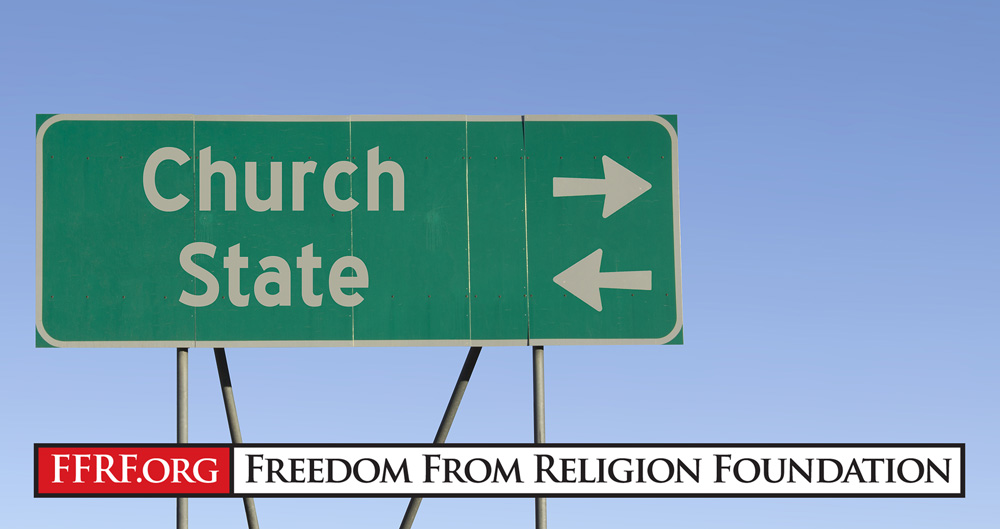
The Freedom From Religion Foundation has filed an amicus brief with the U.S. Supreme Court challenging the constitutionality of the Religious Freedom Restoration Act (RFRA).
The case, Tanzin v. Tanvir, was brought before the court by three men seeking damages under RFRA. “The U.S. Supreme Court accepted a no-fly list case to decide whether federal officials can be sued for money damages in their individual capacities for violations of the Religious Freedom Restoration Act,” the ABA Journal reported back in November.
FFRF is contending in its brief, jointly filed on behalf of FFRF and the American Humanist Association, that RFRA violates the U.S. Constitution.
“The parties’ arguments regarding statutory interpretation and the remedies available under the Religious Freedom Restoration Act (2012) have obscured a fundamental problem with the nature of the suit in the first place: RFRA is unconstitutional,” declares the brief.
The brief was written by Marci Hamilton, a leading state/church scholar and professor at the University of Pennsylvania. She successfully argued before the U.S. Supreme Court in City of Borne v. Flores (1997) that RFRA was unconstitutional as applied to state and local governments.
The brief asserts that it would be disastrous to require government employees to be held personally liable for monetary damages under the act. It would essentially require public servants to evaluate whether the laws they’re enforcing require a religions exemption, which is a tricky question for federal courts to answer, let alone for an individual with no legal training.
“Because of the way that RFRA operates, this case represents just the tip of the iceberg,” states the brief. “As Justice [Anthony] Kennedy noted, the test in RFRA creates the potential for mandatory religious exemptions from civil obligations of almost every conceivable kind. Expanding RFRA to include personal liability for government employees will stifle countless legitimate exercises of government authority at the expense of those the laws are meant to protect.”
This could lead to all sorts of horrendous consequences, FFRF points out. Rather than attempting to weigh the government’s interest against the claimed religious beliefs of a person requesting an exemption — and risking their personal savings and property should they get it wrong — federal employees will likely err on the side of granting blanket exemptions from federal laws. This would have the immediate effect of compromising the rights of vulnerable minority groups.
The way that RFRA is phrased reveals its extremely problematic nature.
“The Religious Freedom Restoration Act says a person whose religious belief is substantially burdened by government may obtain ‘appropriate relief’ in a judicial proceeding against ‘a government,’” the ABA Journal describes the act. “The law says the term government includes ‘a branch, department, agency, instrumentality and official (or other person acting under color of law) of the United States.’”
The 2nd U.S. Circuit Court of Appeals ruled that the plaintiff's RFRA claims could proceed back in May 2018 and the U.S. government is asking the Supreme Court to overturn the decision. FFRF’s brief offers a novel take on the issue.
“RFRA violates the separation of powers and Article V, exceeds Congress’ enumerated powers, and violates the Establishment Clause,” FFRF’s brief concludes. “Accordingly, Amici Curiae request this court address its constitutionality and hold RFRA unconstitutional.”
The Freedom From Religion Foundation, based in Madison, Wis., a 501(c)(3) nonprofit educational charity, is the nation’s largest association of freethinkers (atheists, agnostics), and has been working since 1978 to keep religion and government separate.